The Big Read: Sun Devils at home on road trip from hell
An inside look at the ASU hockey team's unprecedented 36-day undertaking
Welcome to the AZ Coyotes Insider newsletter. I generally publish stories four to six times per week (some of them free). By subscribing, you’ll be supporting independent, accountable journalism. Subscribe now so you won’t miss a story.

The longest road trip in college sports history got off to an inauspicious start. The Arizona State hockey team had just touched down at the Detroit Metro Airport — on Friday Nov. 13, no less — when the staff encountered a problem.
“The stick bags wouldn’t fit under the bus because we were heavier than we have ever been,” Sun Devils equipment manager Jon Laughner said.
On normal road trips, the Sun Devils bring about 50 bags (in addition to suitcases and personal items) including three stick bags that each weigh about 50 pounds. On this trip, originally planned for 22 days, the Devils brought 77 bags, including four that contained a total of 300 hockey sticks. Each of the four stick bags weighed in excess of 90 pounds.
Luckily for the team, director of hockey operations and Swiss Army knife Andrew Matheson had also rented a full size SUV.
“We had to put the windows down to get the stick bags into it,” Laughner said, chuckling. “So we drove from Detroit to Ann Arbor with the windows down and the heater going because it was about 35 degrees outside. It wasn't terrible, and I’ll tell you this much: It was COVID friendly with all that fresh air blowing through the car.”
There have been other hiccups on this trip that was recently extended to 36 days, not the least of which was the 8-1 drubbing the Devils absorbed at the hands of Michigan on the afternoon after that cross-country flight and late-night arrival. As each day passes, however, ASU is finding its groove more and more. There are no more multi-person emails or text messages because Matheson has all but planned the logistics for the rest of the trip with the respective schools’ directors of operation, their equipment managers, the bussing companies, and the hotels in which the team is staying.
Laughner has gained a new appreciation for the quality and magnanimity of the Big Ten’s equipment managers, he and athletic trainer Rick Covard are feeling vindicated over their penchant for “packing for an entire season,” director of sports performance Liane Blyn joined the group in Madison, Wisconsin to “kick the players’ asses on a daily basis,” and after an 0-3-1 start, the Sun Devils have won three of their past four games against ranked opponents to put to rest any questions about the sanity of this barnstorming tour.
“I think the biggest concern when we planned this was that it was kind of unprecedented so we were concerned about the mental well being of the kids and staff being away from home for that long,” Sun Devils coach Greg Powers said. “I have believed from the very start that it was the right thing to do as long as the guys wanted it, and they unanimously wanted to do it.
“They don’t want to get shut down. They don’t want to go back home for four days, have somebody see a girlfriend or a friend or a family member and have that derail us by getting sick. You could catch (COVID-19) in an airport after the holiday season where it’s packed and people are moving all over the place. You could catch it any number of ways. There are too many things that are taken out of our control if we go home that are 100 percent in our control in this current environment. That was how I proposed it to the guys.”
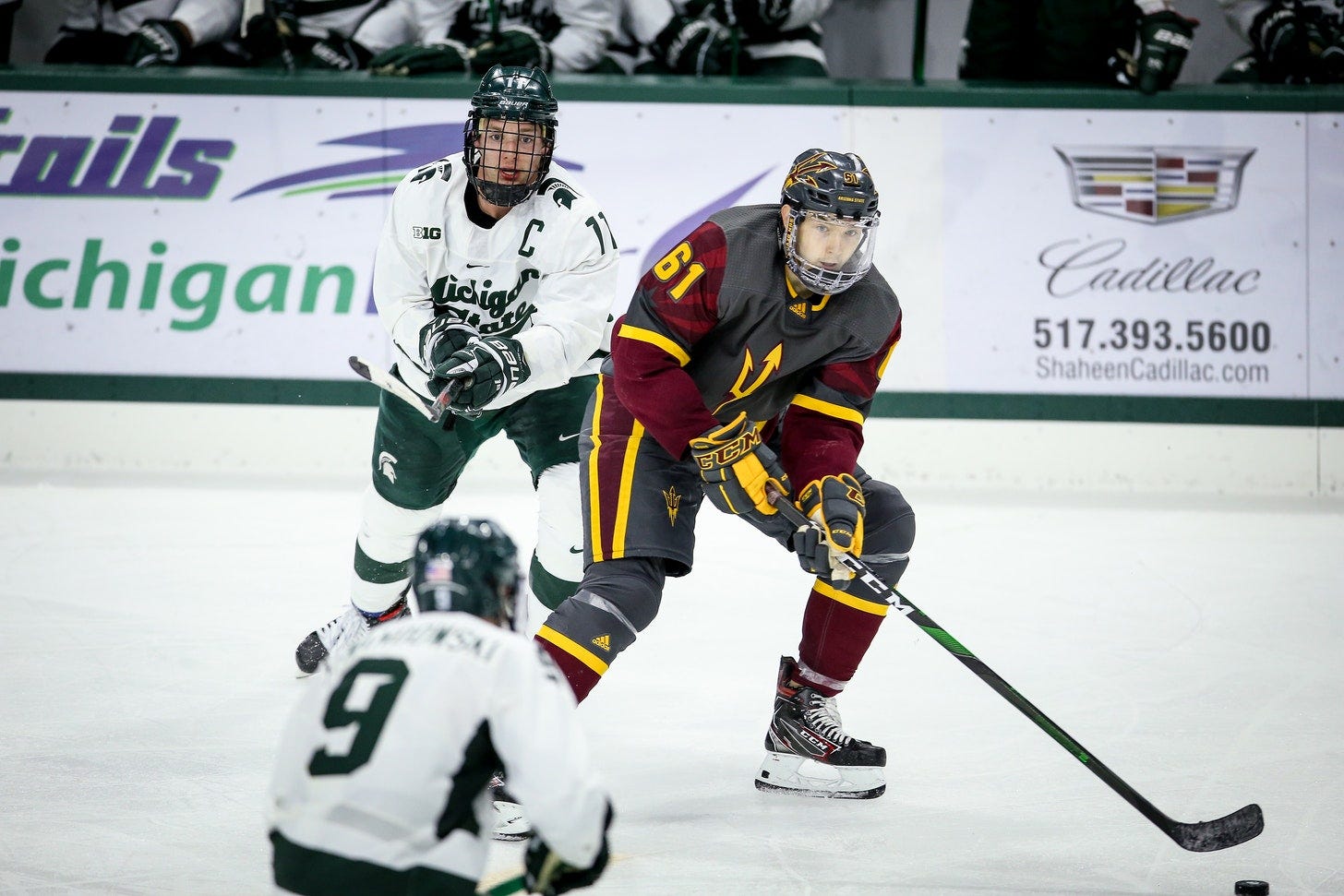
When the Sun Devils first hatched this idea of playing an all-road Big Ten schedule in late September, Matheson admits he was concerned about pitching it to the higher-ups. When it’s all said and done, this road trip will cost ASU about $200,000.
“There was a lot of paperwork that had to be done on the front end with us being a state university and getting permission to travel and spend money,” he said. “Everyone is incredibly tight right now, but our CFO, Frank Ferrara, was able to get everything approved right away. I think by now, it’s pretty clear to everyone just how much our administration and our university support us.”
While the Sun Devils announced their unique scheduling agreement with the Big Ten in early October, they didn’t receive the first, 12-game segment of their schedule until Nov. 5. In that one-month waiting period, Matheson was working the phones and email to plan what he could. There were some awkward conversations.
“I contacted the hotels where Greg Powers and I wanted to stay and I would say, ‘Hey, we’re going to be there sometime between November 13 and March 13,’” he said. “‘Here’s how many rooms I want, here’s the breakdown we typically like and oh yeah, I want to do all of my meals with you at that hotel because my guys are not allowed to leave the hotel.’
“I would imagine all of those people thought I was absolutely crazy, but it has ended up working up pretty well so far. Hotels are empty because of COVID so we’re actually able to stay at hotels that are nicer than we’re used to. We have stayed at nice places in the past if it fits in the budget but this year, the room rates are anywhere from $89-$99 a night.”
As an example, instead of staying at the Courtyard by Marriott in East Lansing, Michigan as they did last year, the Sun Devils were able to stay at the Marriott right on campus.
“They're both nice, clean hotels and they’re Marriott properties so they have that brand standard,” Matheson said. “The only thing is that the food varies. They do their best at the Courtyard but when you stay at a smaller hotel without a kitchen there’s not a lot they can do. The full-fledged Marriott on campus is a way nicer hotel and the food was noticeably better. There’s a lot more flexibility with what they can make for us and that’s really important when you can’t go out to restaurants.”
In Michigan and Wisconsin, the hotel staff (wearing masks, gloves and keeping their distance) served the Sun Devils their meals in to-go boxes which they were required to take back to their rooms to eat due to local restrictions. At Notre Dame (in Indiana), they were allowed to eat together.
While the task of planning 120 meals is mundane, the challenge for Matheson and Blyn is finding healthy but varied choices.
“Being on the road for that long can get old if you're eating the same meals over and over again,” Blyn said. “The day before games and game days are different from other days. A typical meal for them would be a Caesar salad, steamed carrots, green beans, brown rice, potatoes, flank steak and grilled chicken. But on off days, we mix it up. We did an Asian night. We had Thanksgiving dinner with the typical trimmings. Some days, we’ll do pizza because they’re college students and you want to give them a little sense of normalcy in a crazy time.”
When the Devils were in Madison to face Wisconsin, Matheson and Blyn gave them a Midwestern meal on an off day of grilled cheese and ham and cheese sandwiches, tomato soup, chicken soup and of course, brats. But speaking of normalcy, after games, the Sun Devils eat classic college student food such as tacos, fajitas or burgers.
Hotel life is a study in isolation. Each property has provided ASU with a private floor that includes a game room where the team can hang out, play ping-pong or cards. Each player has one roommate with whom he has stayed for the entire trip. Aside from studying (last week was finals week), the most popular way to pass the time is video games such as NHL 21 on Xbox (Sean Dhooghe says Chris Grando and Dom Garcia are the top players) or movies.
“Netflix, HBO and all those accounts, we’re getting our money’s worth with those accounts,” forward Willie Knierim said. “If anybody has any Netflix suggestions, we’re all open ears.”
While at the hotels, the Sun Devils have been instructed not to get on an elevator if someone outside the team is on it, and they are not having their rooms serviced by housekeeping to further reduce contact with outsiders.
“Which is scary with college kids,” Powers said. “I don’t want to go into anybody’s room and see what it looks like.”
Isolation has been a challenge for the staff, too. The coaching staff tries to avoid congregating in rooms in large numbers, and the extended staff has families or pets back home, leading to plenty of Zoom calls with kids or dogs, like Laughner’s chocolate lab, Alta, Blyn’s two rescue dogs and three rescue cats, or Matheson’s Shih Tzu, Gizmo.
The Sun Devils eat their meals either in their rooms or in a banquet room set aside for them. In some cases, the banquet rooms have become multi-purpose rooms.
“Typically, I wouldn't think twice about bringing a kid down to the gym and working on him there in the hotel,” Covard said of his treatments. “Some of the hotels have made the accommodation for us that when we’re in town, we’re the only ones with access to the gym. They close it off to the rest of their guests but in South Bend they didn't do that and I am not comfortable taking a guy down there. It’s an unnecessary exposure so it has required some planning before we leave the rink to either squeeze more stuff in there, or some of our treatments are done in our meal room because that is always closed off.”
Modalities, stimulation and game-prep training are among the methods employed in the banquet room. Even when the hotels block off the gym and sanitize it, Blyn doesn’t take chances.
“I am completely OCD about cleaning so I go in there anyway and clean it before and clean it after,” she said.
Perhaps the greatest benefit of this trip for college players is the sleep-friendly schedule. While they were in Tempe, players’ daily testing generally took place a little after 6 a.m., followed by a workout and practice before their afternoon classes/school work. On the road, the Sun Devils must work around the other teams’ and schools’ schedules.
When practice time arrives, the Sun Devils are instructed not to come down for the bus to the arena (in Madison they walked across the street to LaBahn Arena, saving about $1,000 per day in bus fees) until departure time to avoid congregating in the lobby with other guests. Once at the arena, every player must present his ID card to the health specialist before getting his nose swabbed and then proceeding to the locker room to get dressed for practice.
Sunday was the second and final time during this trip on which the Sun Devils did not have to undergo COVID testing.
“If there is a presumed positive antigen test, the player is immediately isolated from the team and we confirm the positive with a PCR test done immediately,” Covard said. “We have had that happen twice with three kids total. With one kid at Wisconsin, they wouldn’t even let him come down and get his stuff. They isolated him in a room right next to the testing area and someone brought his phone but he was not allowed to be around the team.
“Fortunately, in every case we have had a presumed positive antigen test, the PCR test has come back negative.”
The first presumed positive still created a sticky situation for the Sun Devils.
“Most of the time, we will test at the school we are leaving instead of the school we are coming to, but we may change that after what happened at Michigan,” Covard said. “Two kids had presumed positive antigen tests right before we were supposed to get on the bus from Ann Arbor to East Lansing. We had to buy those two guys a hotel room for the night in Ann Arbor, everybody else left and we were all on pins and needles because we were playing the next day. We got their testing results 20 minutes before the cut-off. If we had gotten them 20 minutes later, they wouldn’t have gotten to East Lansing in time to test and be able to play that night.”
From a visual standpoint, the most eye-popping portion of the Sun Devils’ globe trotting is the volume of stuff with which they must contend. Aside from the aforementioned stick bags and suitcases, there is an enormous amount of supplies.
Covard estimates that he brought between 400 and 500 rolls of hockey tape. Laughner has one a large bag devoted solely to spare hockey gear in case the players have an issue and yet, his student equipment manager, Chase Drieberg, has still had to ship supplies.
Then there are the uniforms. Given the need for carry-on suitcases for the initial flight to Detroit, some players may have more Sun Devil uniform choices than they have clothing choices.
“We have this identity of having what I like to think are the best uniforms,” Laughner said. “I’m sure there’s other people out there that would just say we have a lot of uniforms, but we brought three game jerseys, three helmets, three socks, two helmets and two pants per guy. If you include practice uniforms it’s a total of five jerseys and five socks per guy.
“To say that we have 4,000 pounds of equipment is a pretty safe bet. It sounds like a lot, and I will say that for every equipment guy that is reading this, I did a lot of this to myself. It could have been a lot easier but I tend to make things as difficult as possible.”
Laughner believes the array of uniforms helps the Sun Devils’ exposure (so did a pair of nationally televised games at Notre Dame), like the sunburst jerseys that they wore in the second game against the Fighting Irish.
“We want to be known more for our play on the ice, but I do think people notice,” he said. “People call us the Oregon of college hockey but we’re really the Arizona State of college hockey. We pack heavy because we like to wear different things. We like to look good. We think it’s cool that we can wear all gray against Wisconsin in one game, and then come out and wear all maroon, an entirely different uniform the next night. There’s not a lot of teams that can do that. It does create a little more work for us but at the end of the day, I think the kids really like it.”
Lots of stuff means lots of laundry. Everything gets washed at the arenas after practices and games, but the service has been extended to personal laundry. This may be Laughner’s favorite part of playing in the Big Ten.
“Every equipment guy in this league is an absolute pro’s pro,” he said. “The home guys are taking great care of us, going above and beyond. They do all of our normal game laundry as they would in a normal year, but on top of that, I’m the guy who is asking them, ‘Hey, do you mind if we do some personal laundry?’
“Every player has a laundry bag where he can throw his underwear and socks and T-shirts and clothes and they need to be washed fairly often because you can’t really pack for a 36-day trip. Every equipment guy has said, ‘Yeah, no problem. We’ll get that done for you, too.’ We do it right at the rink. Those commercial washing machines are way better and they’re way faster.”
Lots of stuff also means all hands on deck on moving days. While NHL teams’ equipment staffs generally move the brunt of the supplies (other than players’ suitcases), ASU’s players and staff all do their share of loading in departure cities, and unloading in arrival cities, which always begin with a trip to the arena to unload equipment. The Devils are now renting a second bus to travel between sites to avoid the issues from earlier in the trip and to allow the team to travel separately from the staff.
The team departed South Bend on Sunday morning for the seven-plus hour drive to State College, Pennsylvania, where it will play Penn State in a two-game series on Friday and Dec. 13, before concluding the trip with two games at Ohio State on Dec. 17 and 18.
With finals all but concluded and the temperatures dropping to the point where short walks outside are becoming more difficult, Powers and the staff are planning other activities to keep the players busy and entertained for the final two weeks of this trip.
Once the Sun Devils return to Tempe, the players will continue to isolate with a team Christmas event in the planning stages.
“We don’t know how vaccines are going to affect things in January and February, or even how realistic that is,” Powers said. “We’ll just have to play it by ear, but there’s a real possibility we could be doing this again for the second half (16 games) of our schedule.
“I trust our guys. Even before we came here they were great when they were on campus. In the preseason, we had guys get it and we got through it but once we got into our groove we haven’t had any issues. Guys have been very good at holding each other accountable.”
Despite the time spent away from friends and family, the players appear cognizant of the sacrifices that the university and staff have made for them, and they all appear to be holding up well.
“It’s kind of fun, it's definitely different and we knew it was going to be a little bit of a struggle and a grind, being on the road for this long,” Knierim said. “Like any brothers, we’ll fight and everything, but it is what it is. It’s a little bit longer than we anticipated at first, but you know what? We’re here for it and ready for the challenge.”
Follow Craig Morgan on Twitter: @CraigSMorgan

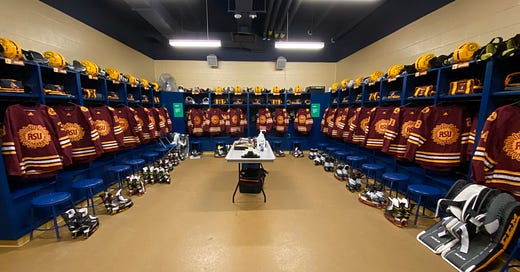


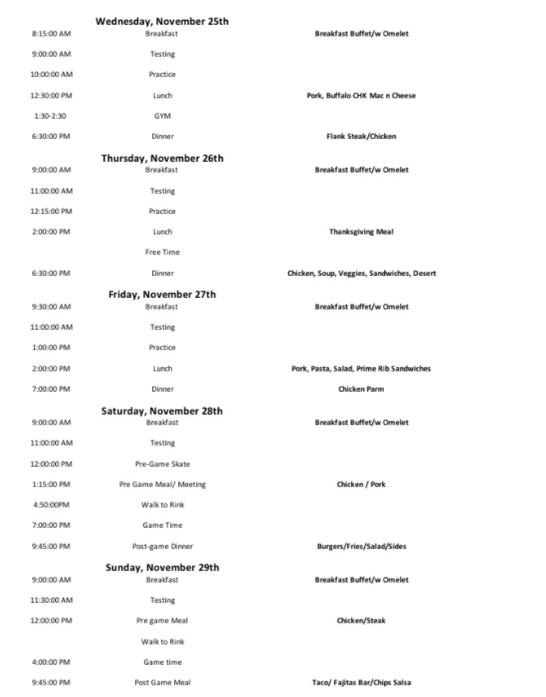

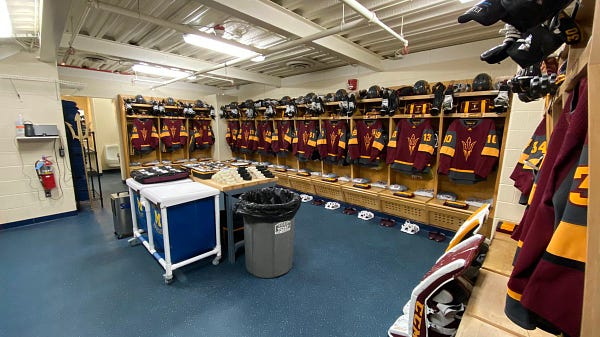
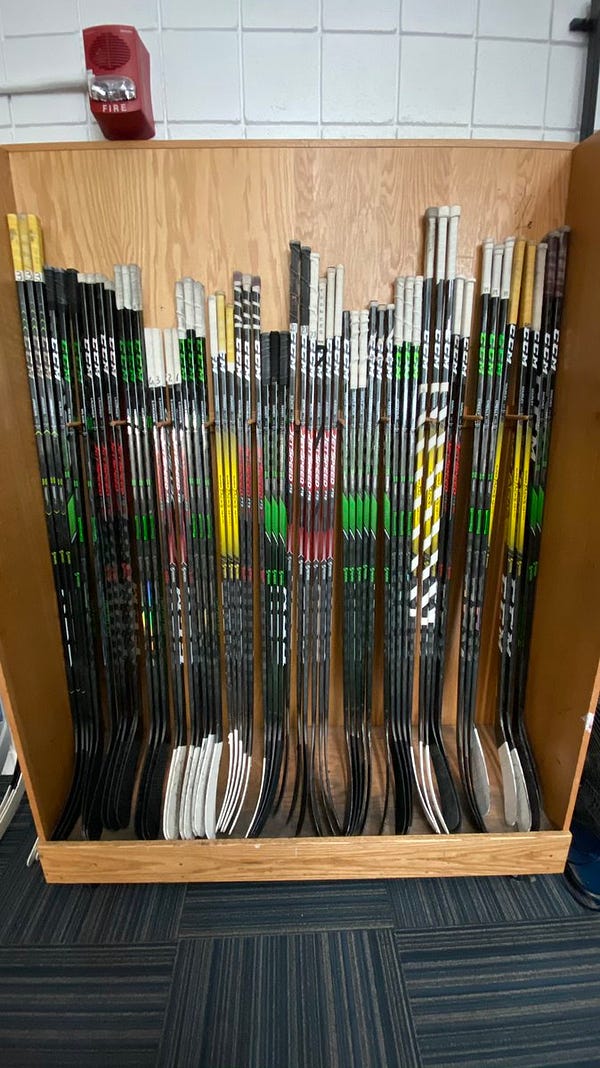
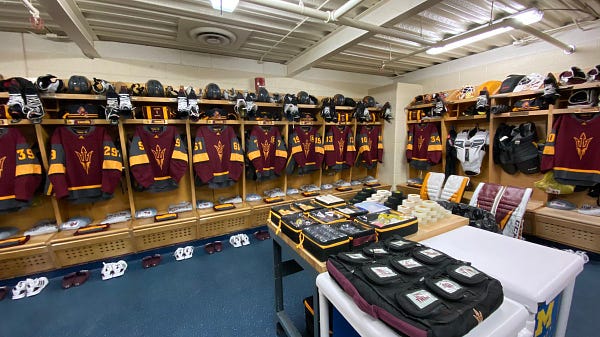
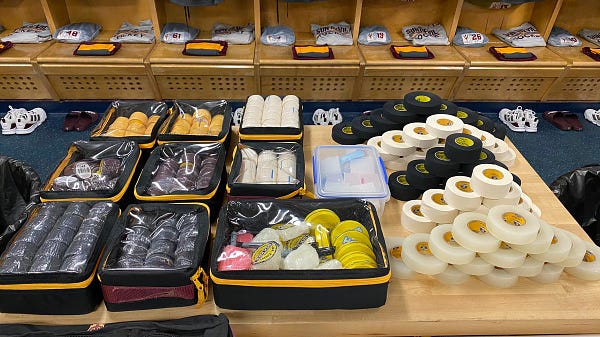
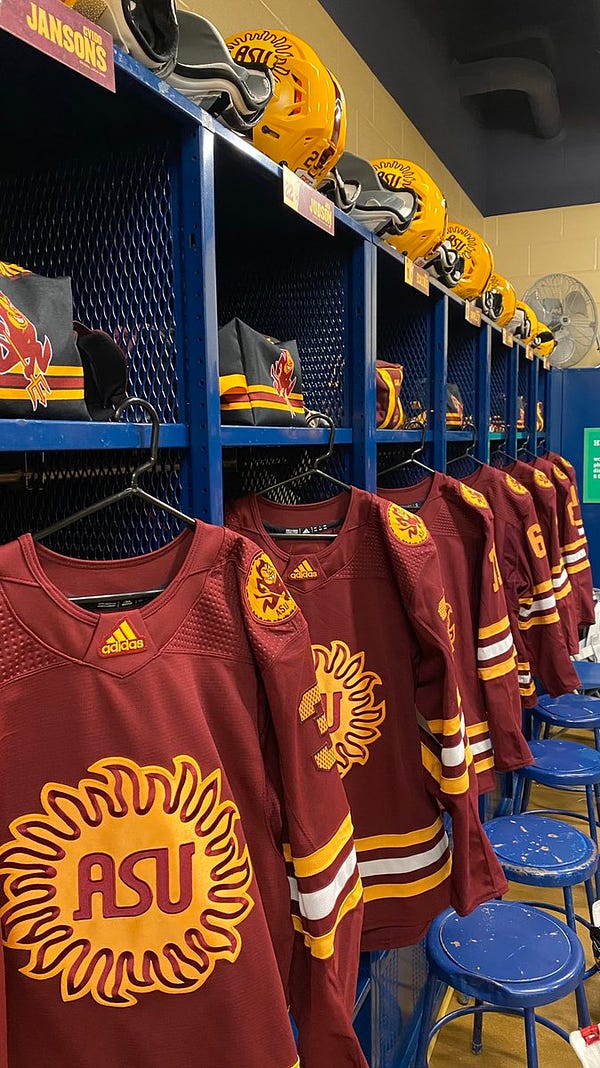
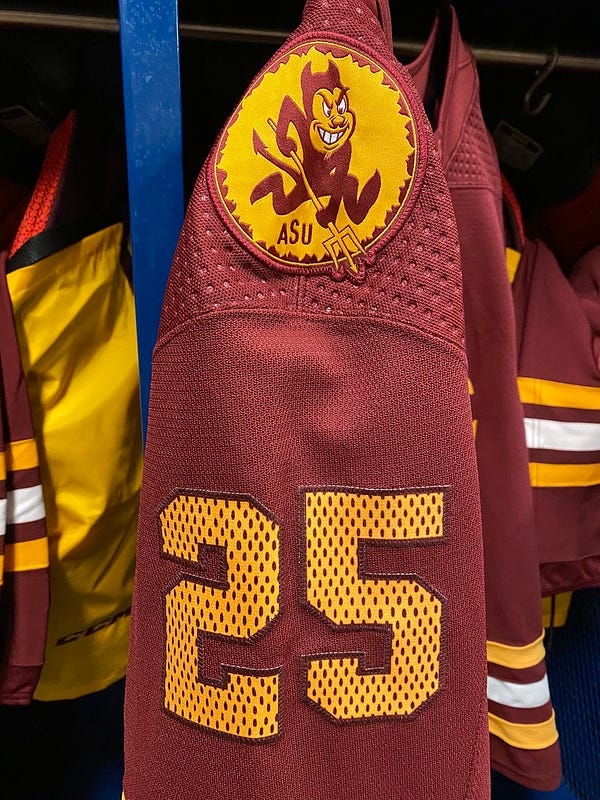
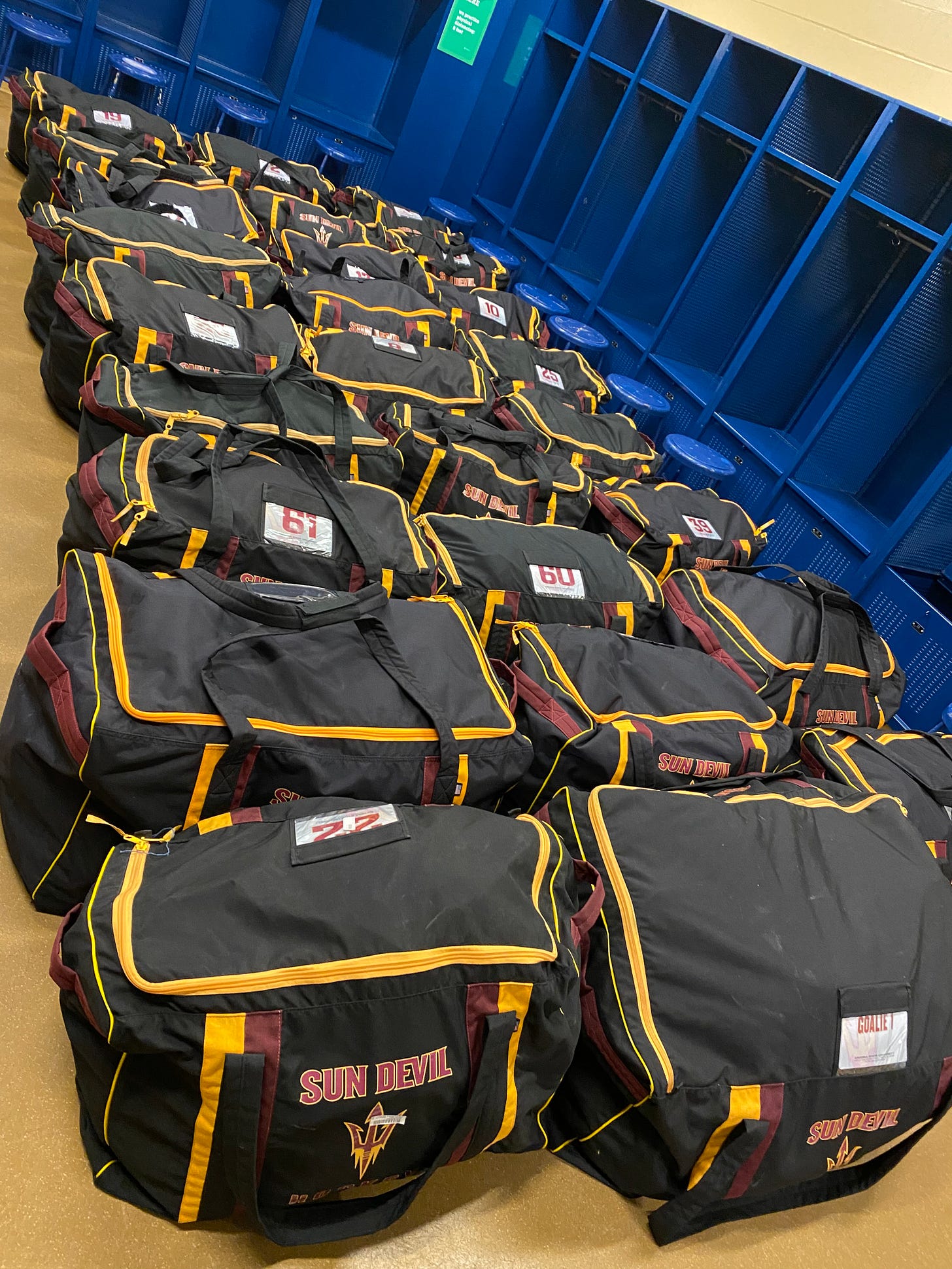

Really, really awesome article. This was a deep dive.
"...It wasn't terrible, and I’ll tell you this much: It was COVID friendly with all that fresh air blowing through the car.” - one of the things I've enjoyed watching this program develop is how they just roll with it sometimes.